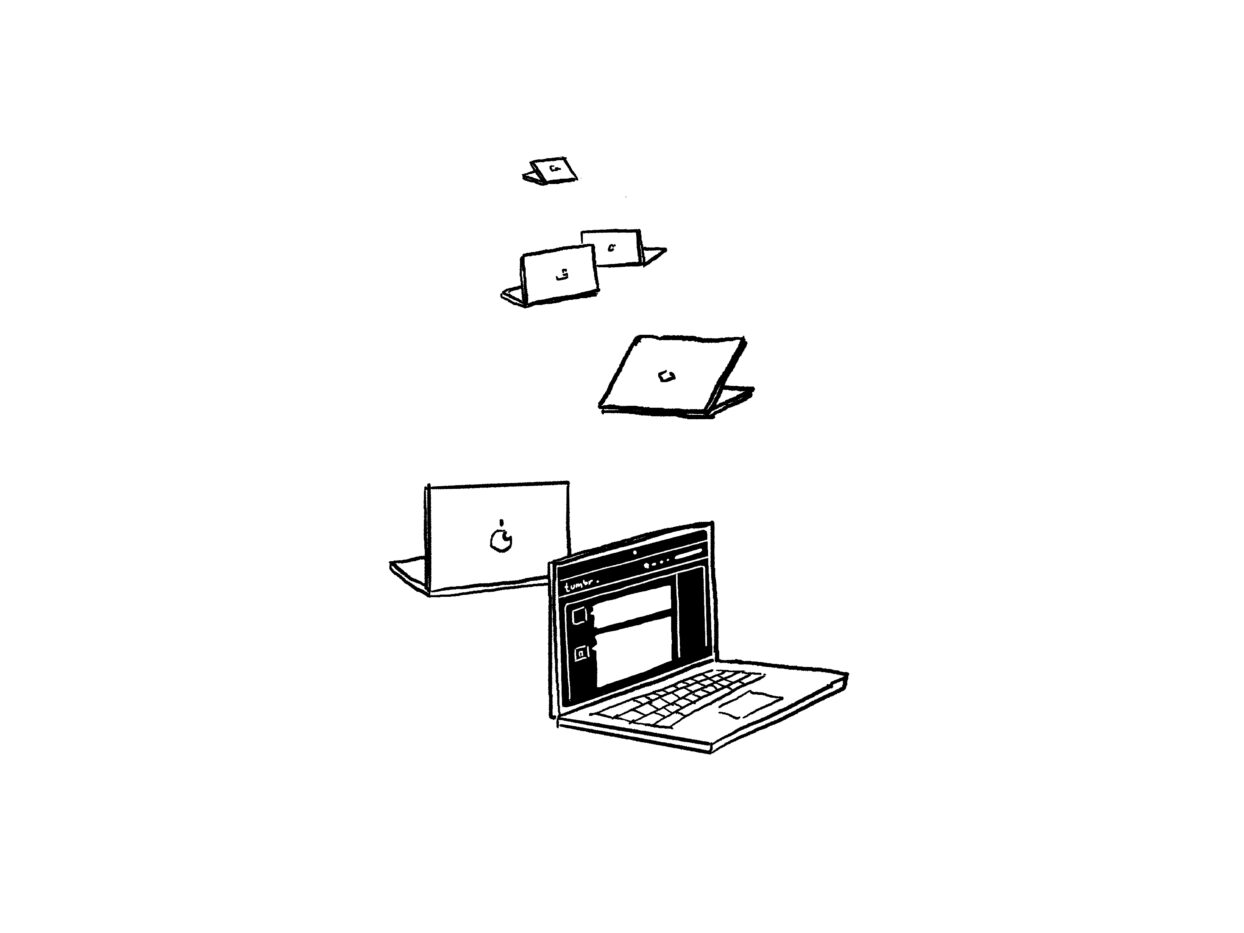
Image by Ivy Sanders Schneider

Image by Ivy Sanders Schneider
So far as I’m aware, nobody in art — and the same goes for the literary scene — is even trying to be avant-garde. Much of the art world is actively and outspokenly opposed to the idea of aesthetic progress or provocation, and has turned backwards, into an arrière-garde. Dead artists, forgotten artists, and traditional mediums and styles are favored exactly because they are implicit rejections of the present and the future.
In the early 2010s, there were movements on both 4chan (anonymous, nihilist trolls) and Tumblr (radicals deconstructing identity) that fulfilled the criteria of being avant-garde: they were coming up with new ways of speaking, new forms of communication and expression, and new ways of being. They offered formal innovations, critiques of modern society, and visions of a different future, all of which were very hard to find elsewhere.
4chan posters adopted some strategies of the historical avant-garde, like transgressive humor, nonsensical absurdity, and culture-jamming, and on their fast-flowing message boards you could watch language and visual culture being collectively remade in real time. Tumblr was more avant-garde still: gender, sexuality, and identity were being pulled apart and reconstructed by young people on it every day, new iteration after new iteration. These users were accelerating toward a new type of human (and beyond it). Both groups produced a kind of communal folk art but were nevertheless avant-garde in their approaches — even if, or more likely because, what they made did not conform to what is traditionally understood as art or culture. They were capable of shocking, and many of their ideas were ideologically unacceptable to the artistic establishment. (Tumblr’s “Masterlist of genders,” for example, has never made it into the canon.)
More recently, similar games of language and form were generated by the “Vibe Shift,” by which I mean the strange ways of writing that appeared in 2021 in places such as Remilia Corporation’s “I long for Network Spirituality” chatroom; Instagram “cellectuals” accounts, which adopt other people’s personae; schizo-affect Substack poetry blogs; Honor Levy’s short stories written with A.I. chatbots and other text processors; and so many obscure, borderline-incomprehensible meme accounts. Language was remade and meaning was often abandoned in favor of senseless babble that conjured a mood. Individual subjectivity was forsaken in favor of pseudonymity, the impersonation of others, collective authorship, and collaborations with software. It was a moment of great cultural malleability. There is a fine line between nonsense doggerel and aesthetic innovation here, but that was always the case with avant-gardes.
Even on Twitter, I often feel the timeline has far exceeded modernist poetry. This cacophony of fragmented voices — in all their paranoid derangement, hallucinatory solipsism, and monomaniacal esotericism — can invoke a thrilling, overwhelming sense of delirium, an ecstasy of connectivity, and a feeling for the infinite. The timeline tells a story, a new and unfamiliar one about how it feels to be alive in the 21st century. It’s the closest we have yet come to giving form to our collective unconscious. It takes us further into the depths of the human mind than the Surrealists were ever able to, and is, I believe, the most honest portrait of humanity ever made.
Today’s online culture is far more inventive and daring than the arts, both formally and in terms of the ideas it presents. Ordinary people, it turns out, are far weirder than artists and writers, and more imaginative too.
Dean Kissick lives in New York. He’s writing a book about the culture of the last ten years, and how it all revolves around the self.